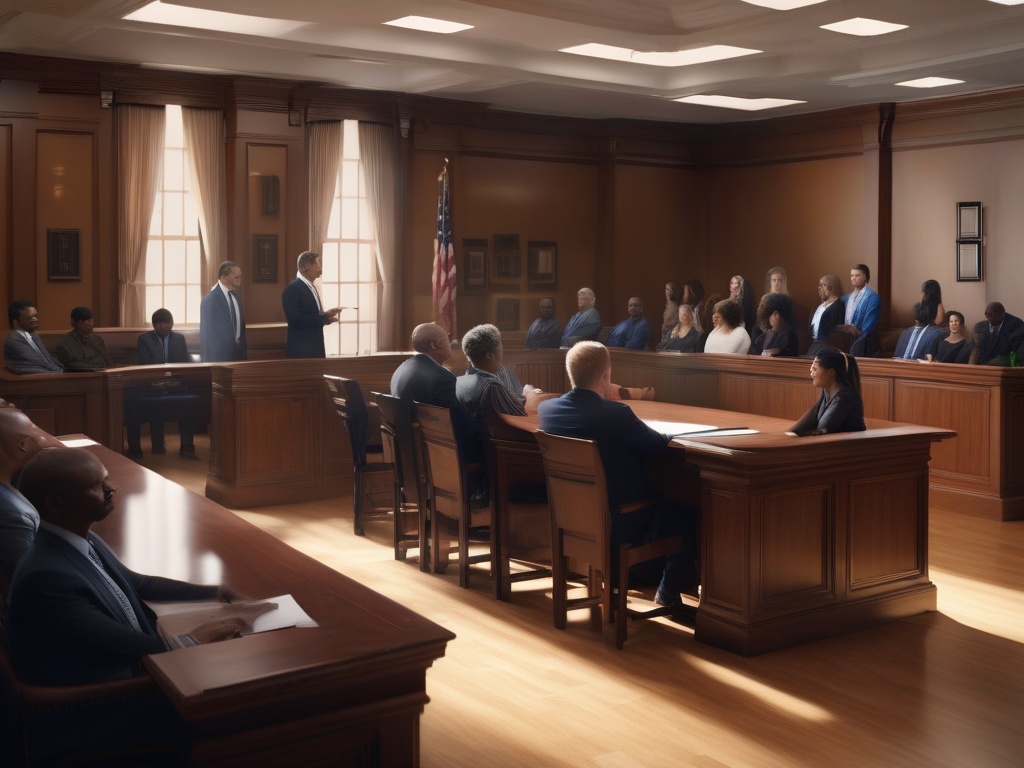
Unveiling the Truth: Who Holds the Power to Seek Justice in Wrongful Death Cases?
When tragedy strikes due to negligence, misconduct, or recklessness, the pursuit of justice becomes a complex yet vital journey. Wrongful death claims are not merely legal procedures; they are a means for bereaved families to find closure, accountability, and financial relief amidst profound loss. But who truly possesses the authority to step forward and advocate on behalf of the deceased? The answer lies in a nuanced understanding of legal rights, familial bonds, and state-specific statutes that govern these sensitive cases.
Typically, the immediate family members, such as spouses, children, or parents, are granted the primary rights to initiate wrongful death lawsuits. This delegation is rooted in the principle that those most affected by the loss are best positioned to seek justice. In many jurisdictions, if the decedent was married, the spouse often has priority, followed by children or parents if no spouse exists.
However, complexities arise when the deceased leaves no immediate family or the family members are unable or unwilling to pursue legal action. In such cases, some states extend the right to file to estate representatives or legal administrators, ensuring that the pursuit of justice is not hindered by procedural gaps. Additionally, in certain circumstances, extended family members or designated beneficiaries may also have standing, especially if they can demonstrate a direct financial or emotional loss caused by the wrongful act.
Understanding who can file a wrongful death claim is crucial because it determines who can shape the pursuit of justice and hold negligent parties accountable. These legal rights are not just procedural formalities; they are a reflection of societal values that prioritize protecting vulnerable families and ensuring that wrongful acts do not go unchallenged. Legal experts emphasize the importance of consulting qualified attorneys to navigate the complexities of wrongful death statutes, which vary across states and circumstances. Ultimately, the power to seek justice rests with those who are most impacted—affirming the profound link between legal rights and personal loss, and reinforcing the critical role of advocacy in the pursuit of truth and accountability.
The Path to Justice: Essential Steps for Eligible Claimants to File a Wrongful Death Lawsuit
Embarking on the journey to seek justice through a wrongful death claim requires more than just intent; it demands strategic action and a clear understanding of procedural nuances. Once the rightful parties recognize their standing, the next pivotal step involves meticulously preparing for legal action. This process begins with gathering comprehensive evidence that substantiates the claim of negligence or misconduct, such as accident reports, medical records, and expert testimonies. Establishing a solid factual foundation is critical for demonstrating the causal link between the wrongful act and the death, ultimately strengthening the case against liable parties.
Following evidence collection, the claimant must navigate the often intricate process of filing the lawsuit within the statute of limitations—time limits that vary widely across jurisdictions. Missing this window can forfeit the right to pursue compensation, making prompt legal consultation essential. Once the filing is initiated, the claimant’s legal team will serve the defendant with the complaint, setting the stage for negotiations or trial proceedings. During this phase, understanding the rights and responsibilities of each party, along with the potential for settlement, becomes paramount. The journey toward justice is thus marked by diligent documentation, timely action, and strategic legal advocacy, ensuring that the pursuit of accountability is both effective and equitable.
Throughout this process, it is vital for claimants to remain engaged with experienced wrongful death attorneys who can guide them through the complexities of procedural requirements and advocate fiercely on their behalf. These legal professionals help clarify each step—whether it’s responding to motions, gathering further evidence, or negotiating settlements—ultimately aiming to secure a resolution that honors the memory of the deceased and provides closure for loved ones. In essence, the path to justice is paved with careful preparation, unwavering commitment, and expert legal support, transforming grief into a force for accountability and societal change.
Navigating Legal Complexities: How to Establish Liability and Secure Compensation in Wrongful Death Claims
In wrongful death cases, establishing liability involves more than proving that a death was caused by negligence or misconduct. It requires a meticulous unraveling of the circumstances to identify the responsible party or parties whose actions or omissions directly contributed to the fatality. Legal complexity arises when multiple entities or individuals could be liable, such as employers in workplace accidents, manufacturers in product defects, or drivers in vehicular collisions. To navigate this, claimants must engage in comprehensive investigations, often involving expert analysis, to pinpoint the breach of duty that led to the loss. This process is critical because the strength of the liability case directly influences the potential for compensation and the pursuit of justice. The burden of proof shifts to demonstrating that wrongful conduct was a significant factor in the event, making thorough documentation and expert testimony indispensable tools in this legal landscape.
Once liability is established, the challenge shifts to maximizing the compensation that can be awarded, addressing both tangible damages like medical and funeral expenses, and intangible losses such as pain, suffering, and loss of companionship. Effective legal strategies involve detailed valuation of damages, considering the unique circumstances of the case and the long-term impact on the surviving family members. Negotiation skills and a deep understanding of jurisdictional nuances play pivotal roles in reaching equitable settlements or achieving successful trial outcomes. Claimants must also be prepared for the possibility of insurance disputes or defense tactics aimed at minimizing payouts. Therefore, partnering with experienced wrongful death attorneys becomes vital, as they can craft compelling arguments, gather persuasive evidence, and advocate vigorously to ensure that victims’ families are justly compensated. Ultimately, navigating these complexities requires a blend of legal expertise, strategic foresight, and compassionate advocacy to transform grief into tangible justice and societal accountability.
